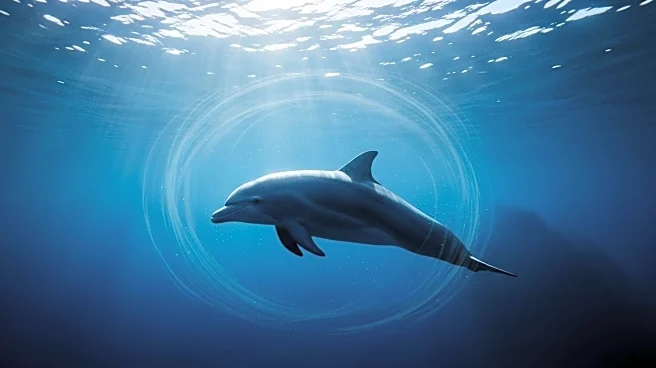What's Happening?
Sea Shepherd, a conservation organization, has condemned a recent dolphin hunt in the Faroe Islands where 285 pilot whales were killed in a single day at Fuglafjørður. The hunt, documented by volunteers, included pregnant females and young calves, raising the actual toll beyond the official count. Valentina Crast, Sea Shepherd's campaign director, criticized the hunt for its cruelty and greed, noting that the meat surplus was even rejected by locals. Initial assessments underestimated the pod size, which was actually around 400, pointing to failures in monitoring and reporting. Despite health warnings against consuming whale meat, the hunts persist, driven by commercial motives.
Why It's Important?
The continuation of dolphin hunts in the Faroe Islands raises significant ethical and environmental concerns. The practice, criticized for its cruelty, impacts marine biodiversity and poses health risks due to the consumption of whale meat. The hunts also highlight the tension between traditional practices and modern conservation efforts. The rejection of surplus meat by local municipalities suggests a shift in public sentiment, potentially influencing future policy decisions. The international attention brought by organizations like Sea Shepherd could pressure authorities to reconsider the practice, aligning with global conservation goals.
What's Next?
Campaigners are calling for an immediate end to the dolphin hunts, advocating for policy changes that prioritize marine conservation over traditional hunting practices. The ongoing debate may lead to increased scrutiny from international environmental groups and potential diplomatic discussions. If public sentiment continues to shift, local authorities might face pressure to implement stricter regulations or bans. The situation could also inspire broader discussions on sustainable practices and the balance between tradition and conservation.
Beyond the Headlines
The dolphin hunts in the Faroe Islands reflect broader ethical dilemmas in wildlife management and conservation. The practice raises questions about the cultural significance of traditional hunts versus the need for sustainable and humane practices. The involvement of international organizations like Sea Shepherd underscores the global nature of conservation efforts and the role of advocacy in driving change. The situation may also influence similar practices in other regions, prompting a reevaluation of wildlife management policies worldwide.










